When I was 22, I was really confused.
I’ve never been good at planning—mostly because I never knew what I should be planning for. During my freshman year of college, I was completely overwhelmed by how many people seemed like they knew what their lives and careers would be like in five years, and even ten years.
Shortly after graduating from college, I found myself sitting in a cubicle in an office environment that didn’t allow for much interaction, let alone connection, with others. For me, the work wasn’t meaningful. Yet, on paper, I should have been proud to be where I was—a well-respected, profitable company with a young demographic of employees. Instead, I experienced guilt about feeling miserable in a job that others would relish.
About five months in, I gave my notice. I was in desperate need of some personal and professional direction. I returned to my computer knowing I wanted to experience something different, and soon. After a Google search I discovered Outward Bound and enrolled in an 8-day dogsledding and cross-country skiing course in Ely, Minnesota that was scheduled to start in a month. I soon found myself in freezing temperatures, dropping to -30° at night with wind chill, sleeping next to strangers from all over the world (the farthest had traveled from London) under nothing but tarps held up by knots we’d learned to tie the day we arrived on base. It was physically and mentally demanding—not always fun—but so impactful that it changed the trajectory of my life. Most importantly, it gave me clarity on the standards I hold for myself in my career. I realized that I don’t have to be miserable. In fact, I don’t even have to be just satisfied. I have a chance to be enthralled and impassioned by my own path because I get to decide what I believe and what I deserve.
Here is what I learned, and what you can expect to take away from an Outward Bound expedition that will transfer into your professional and personal life:
1. Appreciation for the Power of Community
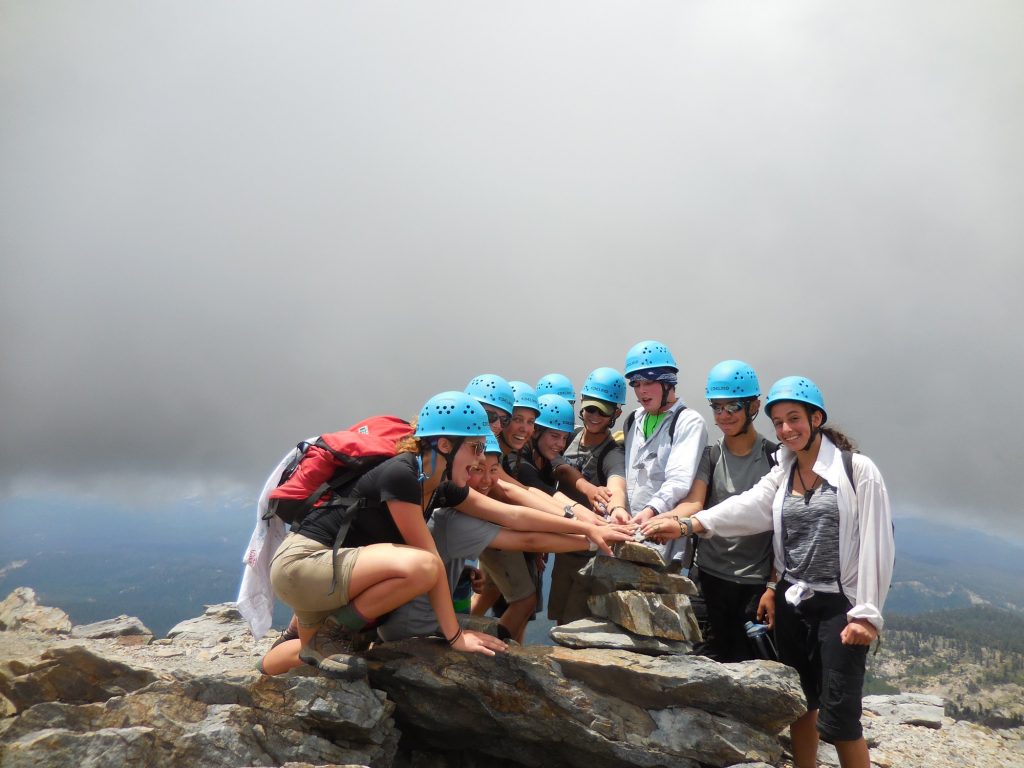
It’s really amazing what happens when a group of strangers come together and work toward a common goal in nature, free of distraction. You’ll develop an awareness of how deeply people can connect and you won’t take this for granted after experiencing it firsthand. Once you’re back at home, you’ll realize that the people you choose to surround yourself with is a really important factor in your development.
2. How to Embrace Your Inner Leader
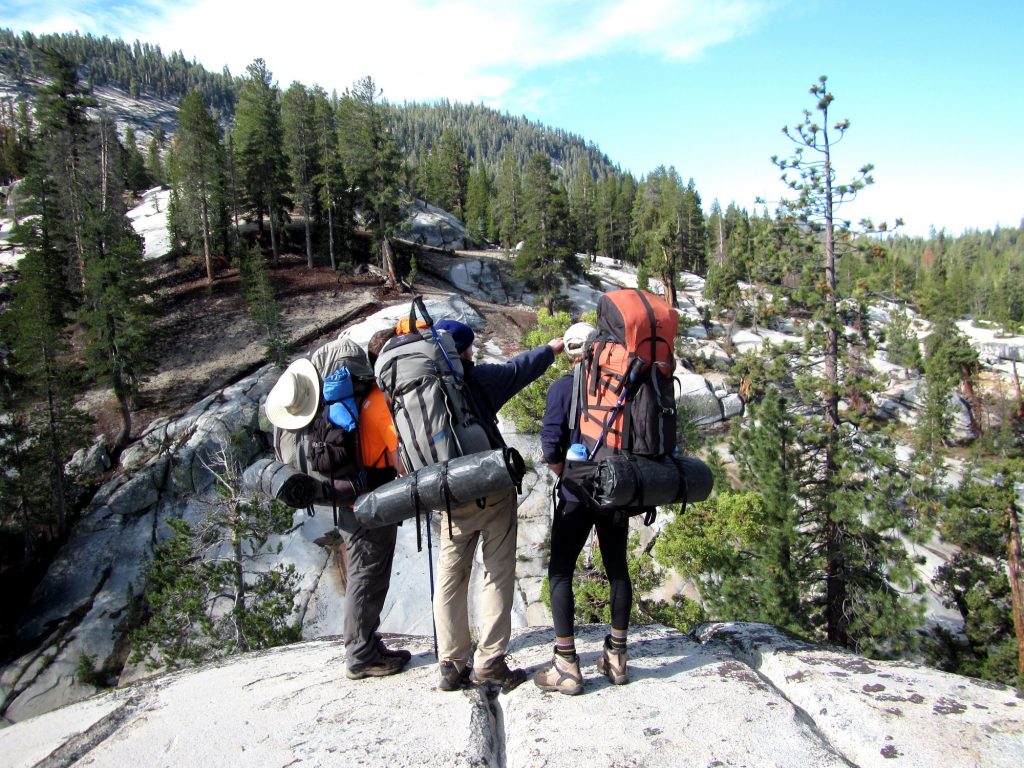
A couple days into your course, once accustomed to your new routine, you’ll have the opportunity to become the “Leader of the Day.” You’ll guide your peers for eight miles down the Colorado River, or take the lead on summit day. If you’re not used to being a natural leader, this role can be really empowering.
3. Empathy and Patience

Everyone comes into course with a different story and different levels of experience. It can be really humbling to receive encouragement and patience and from your group if you’re uncomfortable with high elevation or new to extreme temperatures. Similarly, if you have some experience in the outdoors, you’ll learn to become sensitive to others’ needs and highlight their strengths when they do shine. You’ll find that you’re a kinder individual to friends, family, and strangers back in the front country.
4. Emotional Awareness
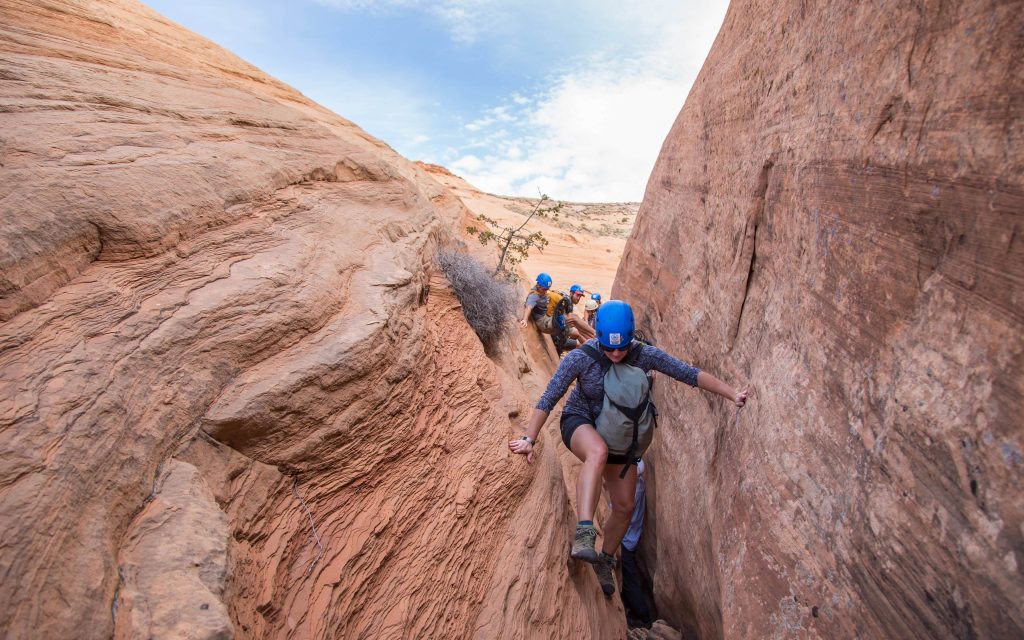
The highs and lows of your course are real. You’ll get to know the individuals in your group really well. It’s common to experience both euphoria when after several hours of climbing you summit a peak, and pure frustration after miles of hiking in direct sunlight through canyons. You’ll learn how to assess your needs and know when to ask for help. You’ll return home from your course with the emotional intelligence that will benefit the relationship you hold with yourself and with others in your daily life.
5. How to Face Conflict With Compassion
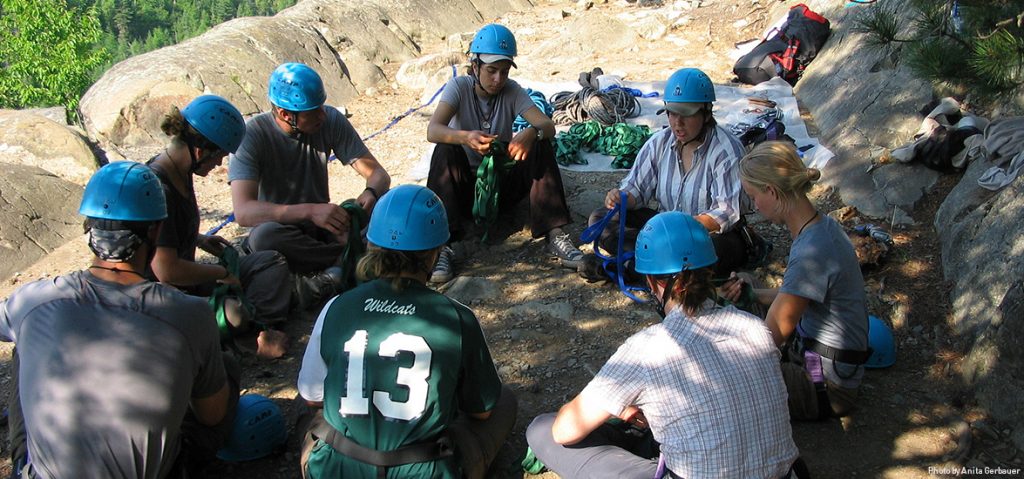
Working with others is a part of life, and it’s rare for everyone to always agree. You’ll learn how to approach a disagreement and express your opinions in a healthy way. Back at work or school, you’ll realize that most people are willing to hear your perspective and work together toward a solution. And they’re usually appreciative that you’ve chosen to communicate with them about a conflict rather than keep it bottled up.
6. The Importance of Taking Positive Risks
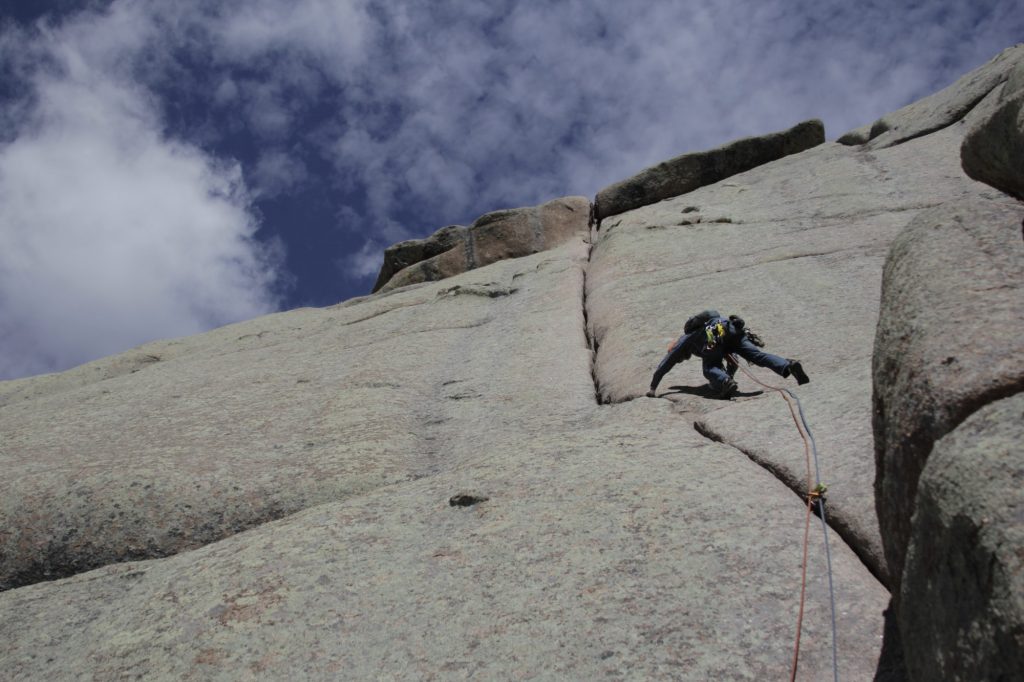
Photo by Griff Jones
By enrolling in an Outward Bound course, you’ve already taken a great positive risk. You’ll learn to get comfortable being uncomfortable. You’ll learn to fail up. You’ll learn to take on challenges even when you’re unsure of how it will go and translate this into your professional life, becoming a more rounded employee, a strong leader and in general, a crusher of life.
7. No Room for Mediocrity
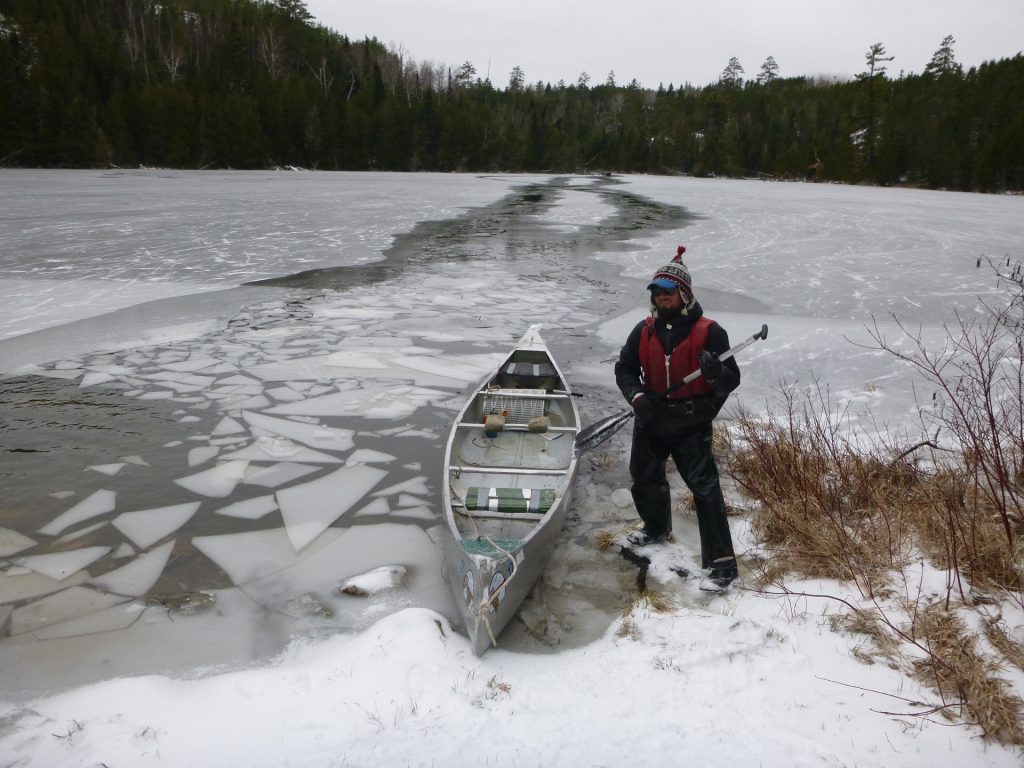
After your course, it’s hard to think about living the same way you did before. You’ll find that you have a desire to set goals and work hard to achieve them. You’ll never again be your old self, and settling for the status quo is no longer an option.
8. Resiliency
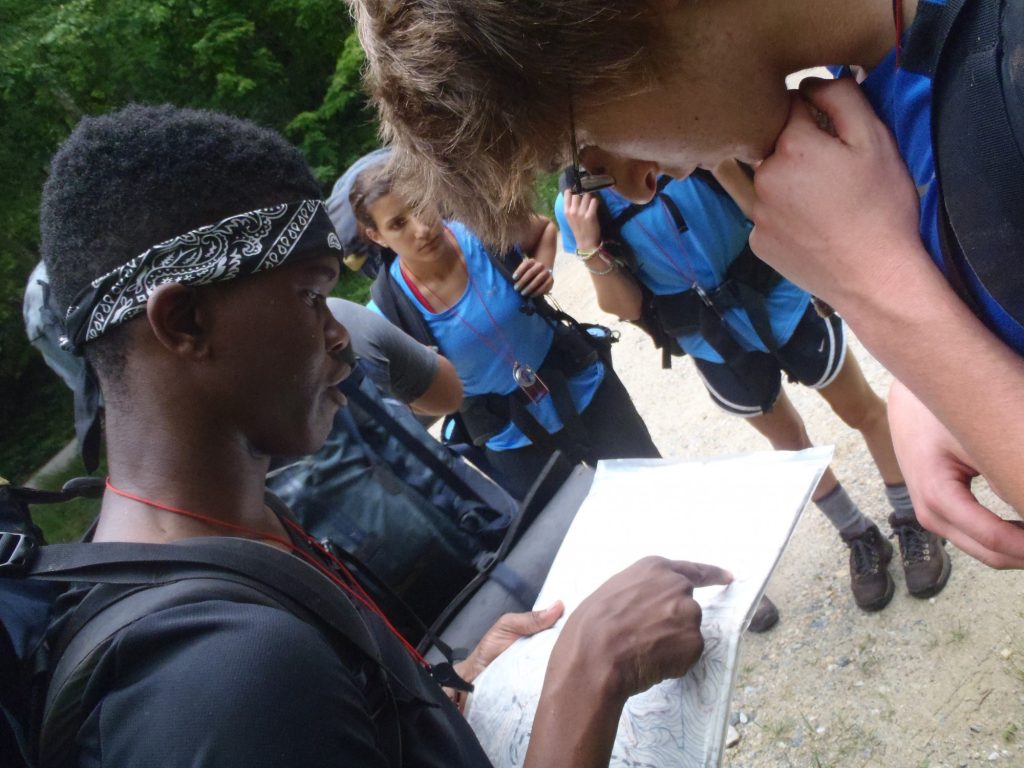
Sometimes things won’t go as planned on your course. Your Instructors may let you get lost in the woods for awhile, meaning that you won’t get to sleep for as long as you’d like. But you’ll learn to develop mental fortitude and become resilient when faced with the unexpected. You’ll become a stronger individual when this occurs in your life at home—because you’ve experienced it and know you have what it takes to push through.
9. Self-Sufficiency
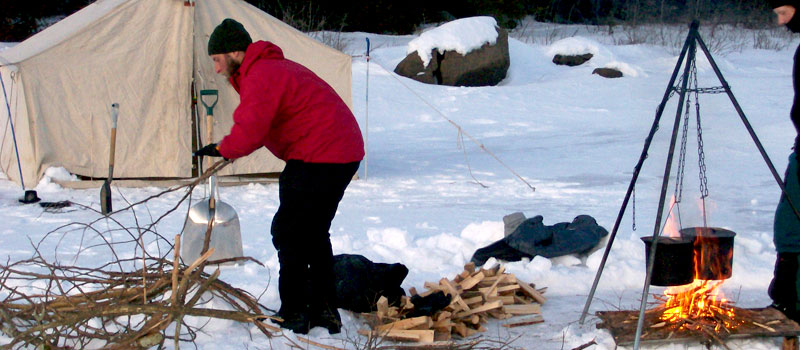
As you become familiar with the systems of living outside—like working a stove, setting up a tarp, and collecting clean water—you’ll feel empowered by your independence and your capabilities.
Before we get to #10, I’ll say that my Outward Bound story doesn’t stop with dog sledding. When I was 24, I still thought about my Outward Bound course daily. I was living in Philadelphia with my friend Kaitlin, whom I had met on my course, and we had a picture of our sled dogs centered on the wall in our living room. I decided to apply for an internship at Outward Bound in Colorado. A couple weeks later, I saw an email that I got the position at the Southwest Program base in Moab, Utah for the summer. I burst into tears of happiness and gratitude.
#10 is something that I’m constantly working toward, and something I believe continues far past the end of your course.
10. Reason for Being
You’ll learn to take small, intentional steps in pursuit of your ”ikigai,” a japanese concept meaning “a reason for being.”
Three years out from my undergraduate degree, I’m slowly starting to organize my interests and priorities to form plans for my career. I’m learning how I can feel more than satisfied while making money, and what kind of woman I want to be. I knew moving to Utah would be something unique, but I felt in my gut that it was right, even if I had to miss my sister’s college graduation, even if I had to miss the family trip to London to visit my youngest sister studying abroad. Making these sacrifices in pursuit of my ikigai, to me, is worth it.
The work environment at Outward Bound is unlike anything I’ve experienced, where everyone is actively sharing their goals with one another and making each other better, like iron sharpening iron. It’s a community I’m so grateful for.
I get to visit courses and meet students; I get to interview them and share their stories; I get to promote an organization I really believe in and prompt others to take a leap of faith into the wilderness. It’s been a great privilege to capture the magic that happens on these courses and share it with the rest of the world. I felt that magic on my dog sledding course and it’s been so exciting to use my skills and passions to communicate the necessity of sharing the outside with others. For me, this need will never cease to exist.
About the Author
Olivia Schneider is a alumnae of the Voyageur Outward Bound School, has volunteered for the Philadelphia Outward Bound School, and is the Marketing Intern for the Colorado Outward Bound School Southwest Program. She loves dance parties, tennis, unplanned nourishing conversations, and being on a boat.




